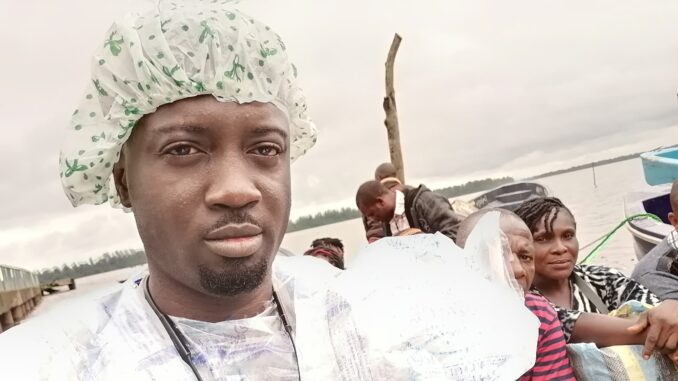
The corona virus Pandemic disrupted many things worldwide. Businesses worldwide are still counting their loses due to the arrival of this pandemic. The tourism sector is one that was mostly affected. The lockdown worldwide resulted in the loss of millions of jobs worldwide. The UN World Trade Organization estimates that the Covid-19 outbreak will cost global tourism industry at least $1.2 trillion. All these translated to the fact that I and millions of others who travel the world for fun would remain indoors till all is safe for us to get back to the skies again.
Personally, my travel plans after visiting all the countries in West Africa last year December was to visit Northern Africa and China this year 2020. Unfortunately, before I could process the visas for all these trips, the international doors of traveling were shut to both business and leisure travelers.
After several months however, the world has started witnessing a gradual opening up of these doors to international travelers. For some of us however, work related policies and increased cost of traveling has made international travels a luxury and an impossibility. In my own case for instance, my company policy banned all employees from traveling outside the country during the pandemic except for approved cases and medical purposes. At the same time, the local foreign exchange of the Nigerian Naira to the United States Dollars which is around 460 Naira as against 360 Naira it used to be some months before the outbreak of the pandemic. All these factors made me think of places in Nigeria I could visit during and after the Covid-19 Pandemic.
Earlier this year, received an invitation to come for a wedding in Port Harcourt in Rivers State of Nigeria. Ebuka has been my very good friend for almost 20 years and requested I be his best man at his wedding – an appeal I accepted whole-heartedly and committed to attend.
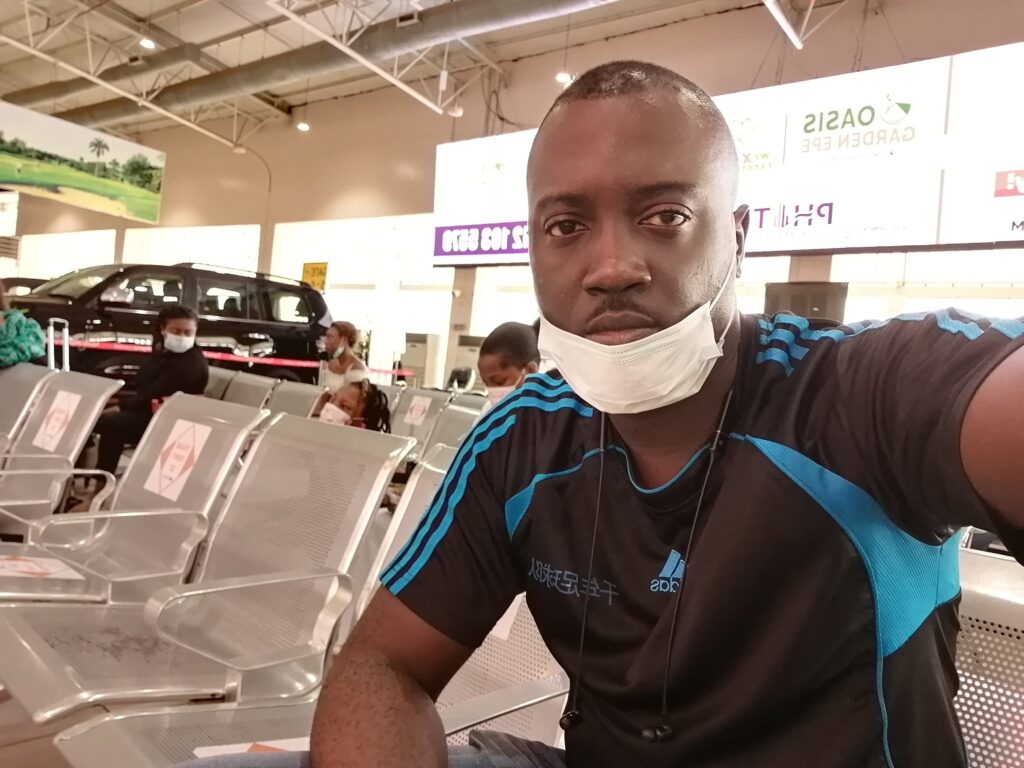
Since Cross River State in Nigeria is one of the states that come to mind when people discuss tourism in Nigeria, I decided to visit the state again to do some tour before continuing to Port Harcourt for the wedding – both towns are located on the same geographical space. At the point of leaving my abode in Lagos to fly to Calabar, I never had any particular attraction in mind to visit. Obudu, Tinapa and the rest are very good places to visit but I really wanted something different.
On arrival at Calabar, I stopped by to visit a former colleague Olamide of mine who left our employer to join the Nigerian Navy and was serving at Akpabuyo in Cross River State at the time. I thought I could tour this town to see ancient history but unfortunately, I found out there was not much to see or experience there. During interaction with Olamide, I overheard several people discuss the fact that Bakassi is very close to this town and I thought it would be an interesting thing to visit this piece of history that many people have talked about and discussed before I was born.
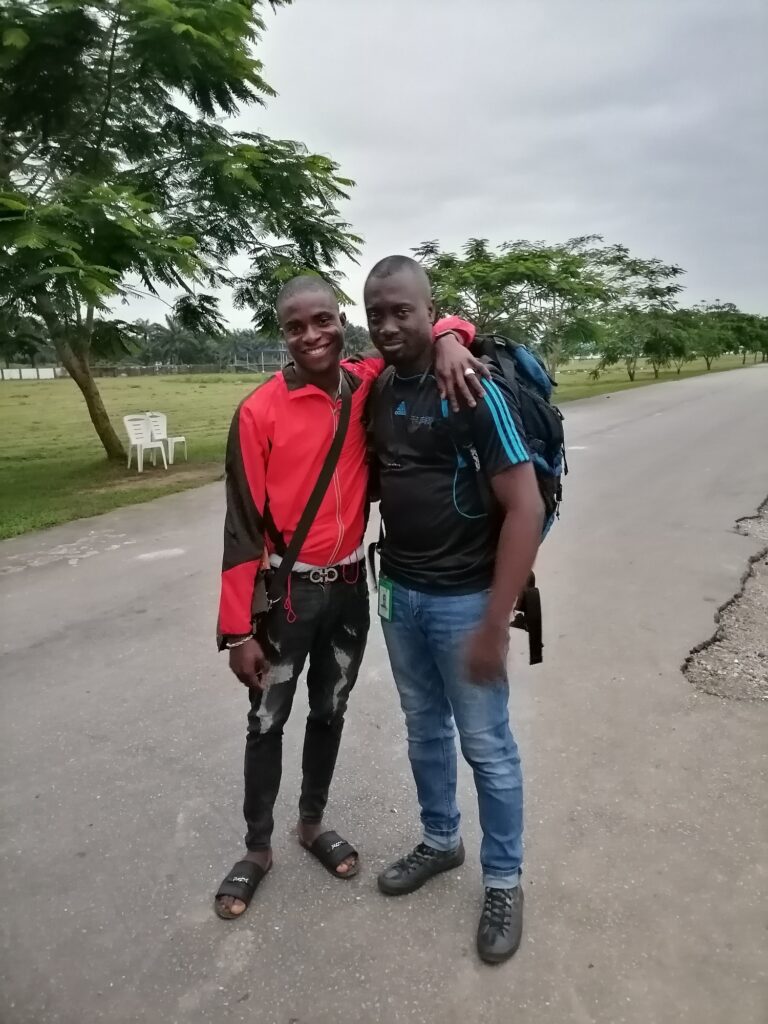
My first time of contemplating visiting this Peninsula was two years ago when I passed it on my way to Cameroon on the Atlantic Ocean. We passed the peninsula on a speed boat but we did not get too close to see things. I thought this would give me a very good opportunity to visit the Island and find out the history of this place for myself since I have heard several narratives about Nigeria’s ownership of the Peninsula and eventual ceding to Cameroon.
The next morning after my arrival to Akpabuyo, I had to take a shared taxi to the Ikang Border from where I boarded a boat to the Bakassi Peninsula. It is important to note that people were so unwilling to discuss the issue of Bakassi and the ceding of the Peneinsula to Cameroon. They were all afraid but eventually, I was able to speak to one of the men whom I assumed was a youth leader.
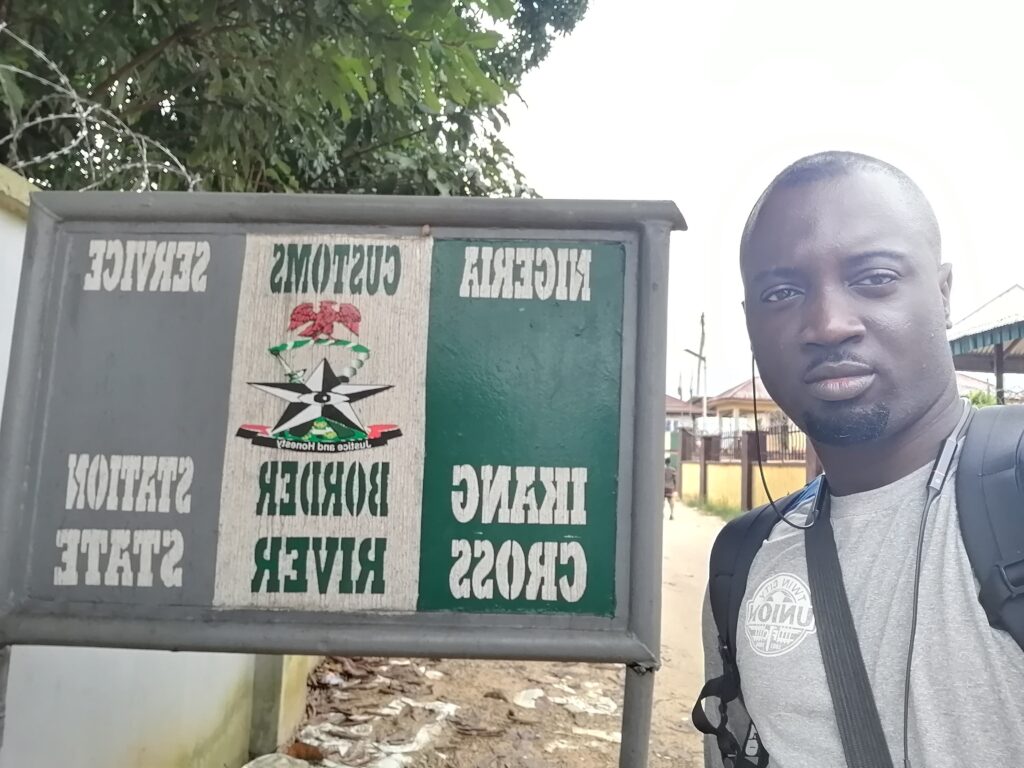
The guy told me a lot about Bakassi and why he believed it should not have been ceded to Cameroon. He told me about the poor welfare of the several of the inhabitants of the peninsula whom returned willingly to Nigeria and were resettled at internally displaced persons (IDP) camps. Most importantly, he advised me not to conduct any interviews about Bakassi when I arrive the Peninsula or else, I might risk being arrested and sent down to Cameroon since the Peninsula has been handed over to them officially by Nigeria.
Fellow passengers on the boat told of how several journalists or people whom the Cameroonian authorities assumed to be spies were arrested and sent to Buea or Yaoundé in Cameroon for questioning. I was advised to stay neutral and never to raise a sensitive conversation – this is because the person I might talk to might report me to the authorities for favors and then these soldiers would end up arresting me for questioning.
At the time of my visit, I knew little or nothing about the ownership of the Peninsula. On my return, after several researches I did, I have been able to establish that even though historically, the land did not belong to Nigeria, the actions and inactions of some people contributed to the loss of peninsula to Cameroon.
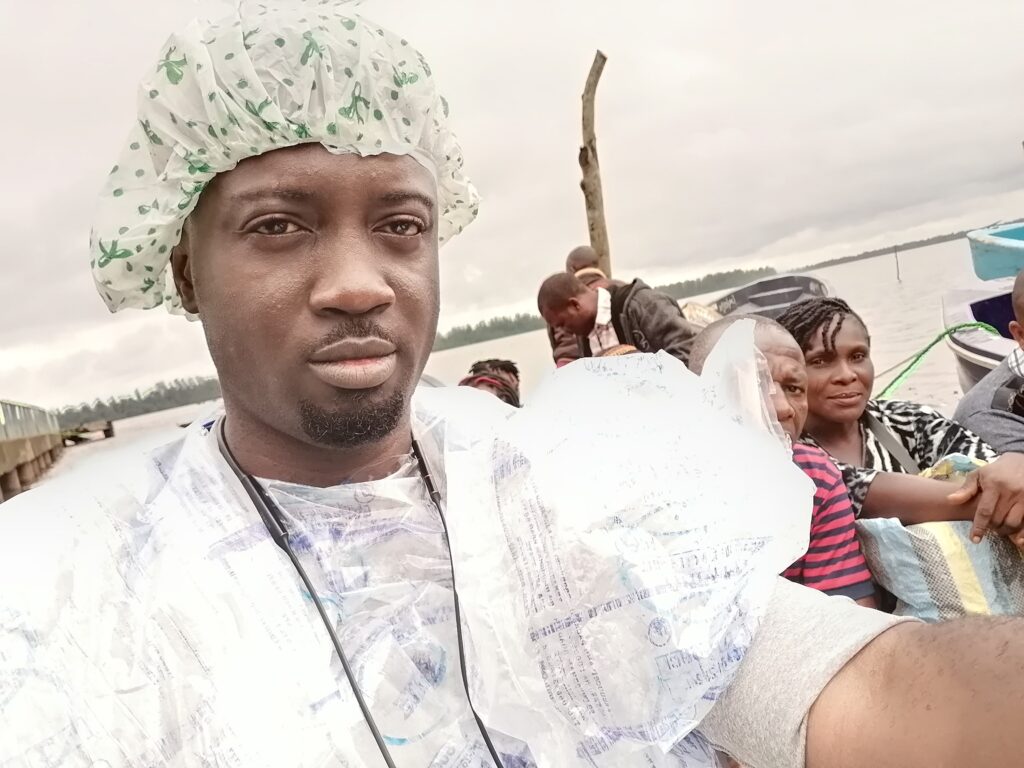
There is also very popular narrative that the Peninsula was offered to Cameroon in order to secure their support for Nigeria during the Biafra/Nigeria civil war. Even though colonial documents showed the region belongs to present day Cameroon, the actions of President Gowon of Nigeria when the civil war started, the treaty Nigeria signed with Cameroon in 1971 and 1975 when Gowon was at the helm of affairs would convince anyone without prior information that the parcel of property was ‘gifted’ out to Cameroon. Let us consider the different activities in history that helped Cameroon win the case at the International Court of Justice in 2002. Let me not fail to acknowledge the works of Nowa Omoigui, MD, FACC whose earlier works provided a lot of background information for this study.

Post Berlin Conference Era
As part of Old Calabar, the Bakassi Peninsula came under British protectorate on September 10, 1884 when Great Britain signed a treaty of Protection with the Kings and Chiefs of Old Calabar.
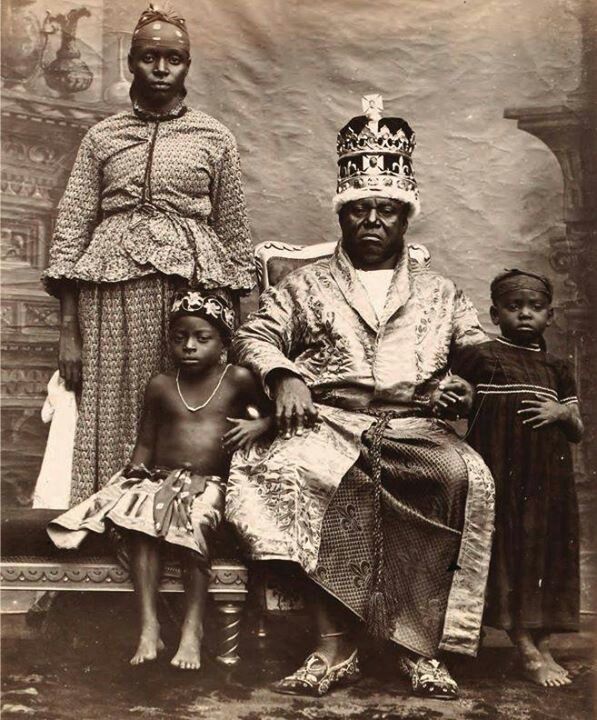
The international rivalries among the European colonial powers led to the Berlin West African Conference, which was convened by the German Chancellor, Otto Von Bismarck in 1884-1885 to partition Africa peacefully amongst themselves.
Between 1885 to 1913, many international events had taken place which had legally affected Bakassi as part of Old Calabar, whose Kings and Chiefs had entered into treaty of protection with the British in 1884.
In order to avoid or reduce border conflict in the territory that later became Nigeria-Cameroon boundary, Great Britain and Germany began to enter into several treaties to delimit their boundaries in the region.
Consequently, on March 20, 1885, Britain and Germany agreed that the right bank of the Rio del Rey be made the starting point for a boundary that was to extend in a straight line to the Cross River
The big day was 11 March, 1913 when Great Britain entered into an agreement with Germany that is today known as the Anglo-German Treaty. This treaty determined the position of the borders of British Nigeria and the then German Kamerun. This agreement would in several years to come determine who will own the right to the Peninsula.
Article 20 of this treaty provided thus: “should the lower course of the Akwa Yafe so change its mouth as to transfer it to the Rio del Rey, it is agreed that the Area now known as the Bakassi Peninsula shall remain German territory”. This automatically transferred the peninsula to Germany and indirectly to Cameroon. This 1913 Anglo-German Agreement superseded all previous texts in connection with the disputed area till date.
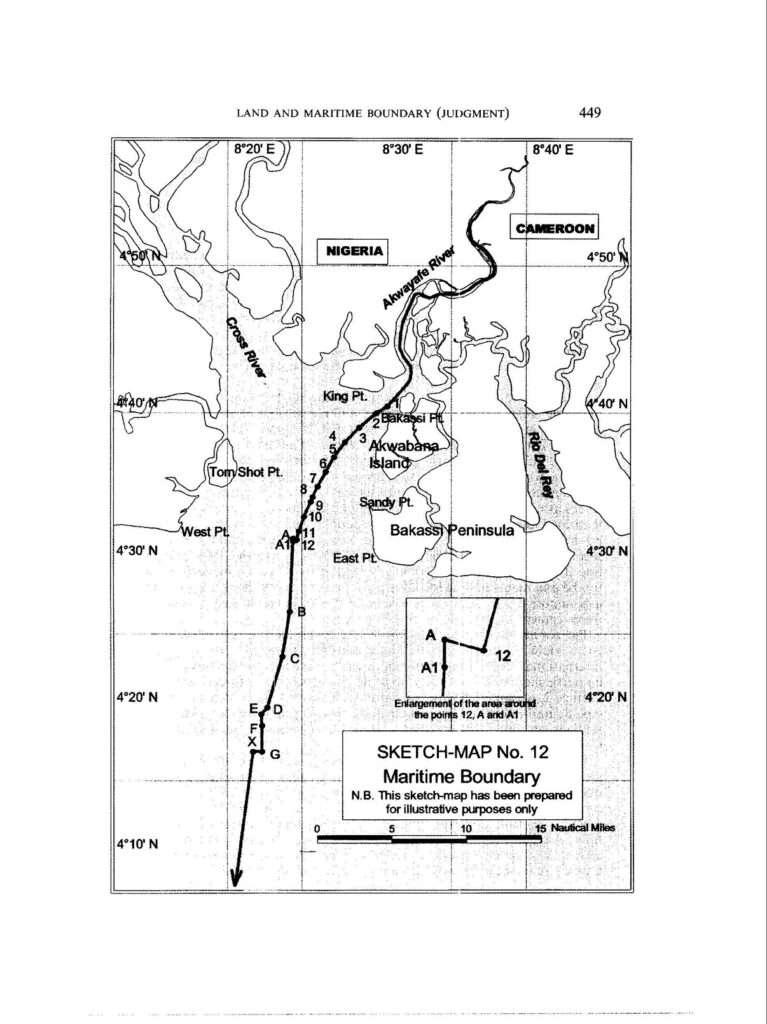
The First World War broke out in 1914 after which Germany lost and then eventually lost colonial control of Kamerun. It was split into the present day French Cameroon that was administered by the French and British (Southern) Cameroon that was to be administered by Britain. This new British territory was merged with Nigeria in 1922, an existing neighboring British territory.
Pre-Nigeria Independence Era
After the merger of Nigeria and Southern Cameroon, there were several occasions during this union of Nigeria and Southern Cameroon were the leaders and the people feared of Southern Cameroon feared domination by Nigeria if they continued to exist as one. Some of these events are as follows:
- The Igbo-dominated Eastern Region of Nigeria saw Southern Cameroons as a new frontier rich in opportunities for entrepreneurial and educated Nigerians alike. Former German plantations in Southern Cameroons that had since been incorporated as a Nigeria and attracted a large Igbo workforce not only as laborers on the fields but also as plantation managers and as administrators in British Southern Cameroons colonial offices. This raised fears of an eventual Igbo domination.
- The outbreak of a dispute within the Eastern House of Assembly based in Enugu in May 1953 where nine out of thirteen delegates from the Southern Cameroons, who were originally been elected on the platform of the National Council for Nigeria and the Cameroons (NCNC), opted for ‘benevolent neutrality’, claiming that they were not Nigerian.
- Mr. S. T. Muna, the only Southern Cameroonian in the Eastern Executive Council at that time was dismissed. For these reason they opted to become a region different from the Eastern Nigeria.
- Later in that 1959, 1st Queens Own Nigeria regiment (1QONR) was temporarily deployed to southern Cameroons for “Training” in Beminda, part of Southern Cameroon and the local population interpreted this to mean a show of force by the Nigerians who might be working for the French – who actually were having problems with the local Bamileke insurgents in French Cameroon.
Britain agreed to the request of creating a new region for Southern Cameroon and implemented separation in 1954, making the Southern Cameroons (including Bakassi peninsula) a semi-autonomous quasi-region of the Nigeria Federation with its own House of Assembly and Executive Council located at Buea.
With the escalation of these conflicts, most Southern Cameroonians favored self-determination – independent of BOTH Nigeria and Francophone Cameroun. The British did not favor this option. They feared for the economic viability of the new country and they wanted they remained with Nigeria or Cameroon.
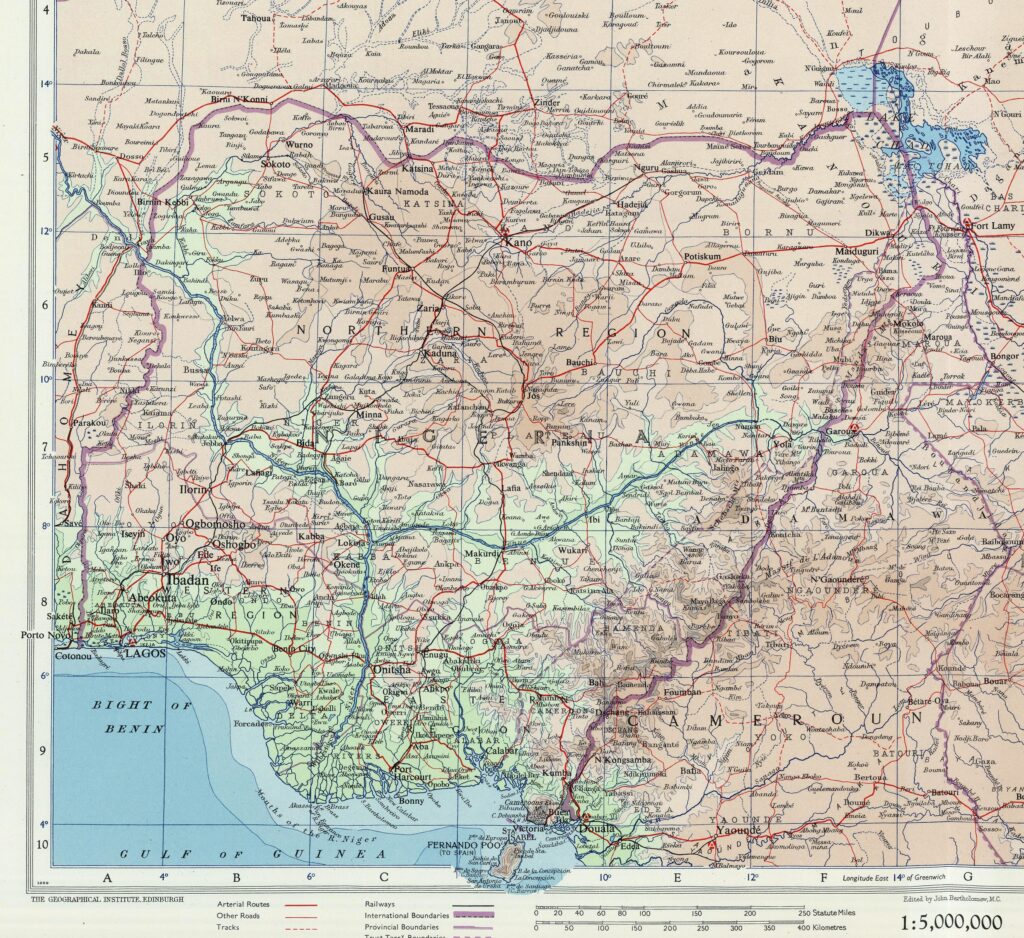
Several Bamileke tribes men whose tribe were split between the British Cameroon (Nigeria then) and French Cameroon after the dismemberment of German Kamerun lobbied for Southern Cameroon to join the present day Cameroon when the issues with the Eastern Assembly and Igbo domination in Nigeria started.
The United Nations organized a referendum in 1959, which had options for the regions (Southern & Northern Cameroon) to join either Cameroon or Nigeria. However, popular opposition to these choices compelled their leaders to request for Southern Cameroon’s independence.
In October 1961, therefore, following the UN Plebiscite on February 11 that same year, the Southern Cameroons (including the Bakassi peninsula) and was federated with the Republic of Cameroun, while the Northern Cameroons joined Nigeria.
The independence of Nigeria from Britain saw Nigerian signing an independence agreement with Britain of which they were bound to inherit all the past agreements and assets of Britain – which include the Southern Cameroon which had Bakassi Peninsula and the 1913 Anglo-German Treaty.
Post Biafra/Nigeria Civil War Era
In July 1967, the Nigerian Civil War broke out – and lasted until January 1970. During the war, both Nigeria and Biafra were in an international rat race for support and recognition. Nigeria lobbied its neighbors to prevent Biafra from using their territory as either a staging point for military operations or throughput for weapons supply.
After negotiations with Cameroon by the then Gowon led Nigeria, the Nigerian government got assurances from Cameroun that the Bakassi Peninsula (which Nigeria had acknowledged as far back as 1962 was in Cameroun and, therefore, outside its control) would not be used by Biafrans.
These negotiations is what so many today believe that is was the reason why Nigeria decided to handover Bakassi Peninsula to Cameroon. According to this narrative, the Peninsula was used to compensate Cameroon for taking sides with Nigeria.
After the war, Nigeria realized that all existing evidences pointed to Cameroon being the rightful owner of the Peninsula and in April 1971, there was a summit meeting of General Yakubu Gowon of Nigeria and Alhaji Ahmadou Ahidjo of Cameroun in Yaounde.
At this meeting, the Head of Boundaries from the Nigerian side did not attend the meeting – which might look suspicious to the school of thought that believe that the Peninsula was used to thank Cameroon for their support. It was at this meeting that Yakubu Gowon of Nigeria and Amadou Ahidjo of Cameroon agreed to settle the scores on bother related issues between the two countries.
It was said that during this meeting, Ahidjo asked his Cameroonian survey expert to stop arguing and told Gowon to draw the borderline where he wanted it, Gowon turned to his own technical expert for guidance. The expert marked a point on the map and Gowon drew the line toward that point. Unfortunately, the line Gowon drew – on direct advice from the Director of Federal Surveys – was not the true navigable channel. Not only did it run right into a ridge, the line crisscrossed the navigable channels of the Calabar and Cross Rivers, which the British had intended (with German agreement) to be completely on the Nigerian side, west of the Akpa Yafe channel. The International Court of Justice would base her judgement eventually on this action.
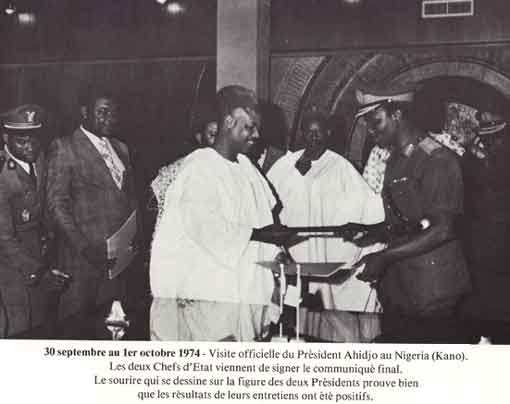
In June 1975, at Maroua in Cameroun, Gowon and Ahidjo signed the maritime border up to point deep down into the ocean. In extending the maritime border up to the Nigeria-Equatorial-Guinea line. By so doing, a disputed triangle of oil exploration near the Cameroun-Nigeria-Equatorial Guinea tri-border was granted to Nigeria.
This agreement which is also known as the Maroua Declaration saw a border extension for Nigeria of which many experts believe is an exercise in damage control for Gowon’s error in 1971.
This dispute over the possession of the Bakassi Peninsula lingered several years after these events, leading to considerable tension between the two countries and the loss of lives of both civilian and military population. Not wanting to go into war with Nigeria due to its perceived military might, Cameroon decided to take the dispute to the International Court of Justice (ICJ) on 29 March 1994.
International Court of Justice Intervention Era
Determining the rightful owner of the Peninsula was an extremely complex exercise for the ICJ, requiring the court to review the several diplomatic exchanges we had examined earlier which dates back to over 100 years. Nigeria’s claim on the peninsula was based on the Anglo-German correspondence dating from 1885 as well as treaties between the British colonial powers and the indigenous Old Calabar Kings, particularly the 1884 Treaty of Protection.
Cameroon anchored on to the earlier Anglo-German treaty of 1913, which delimited the sphere of control of each of the countries, as well as two agreements signed in the 1970s by the presidents of Cameroon and Nigeria.
According to Wikipedia, on 10 October 2002, the ICJ delivered judgment and determined that Cameroon was the rightful owner of the resource rich peninsula. In Bakassi, there were at least 300,000 Nigerians, which accounts for 90 per cent of the total population of the peninsula. They were offered the option of giving up their Nigerian nationality and be treated as foreigners or becoming Cameroonians; or leaving the peninsula back to Nigeria, abandoning their source of livelihood. The United Nations (UN) supported the ICJ verdict, putting pressure on Nigeria to accept it.
In New York on 12 June 2006, Paul Biya of Cameroon and Olusegun Obasanjo of Nigeria at the leadership of Kofi Annan, the UN Secretary General at the time, signed the Greentree Agreement that allowed Nigeria to keep its civil administration in Bakassi for two more years. The Nigerian Army agreed to withdraw at least 3,000 soldiers within 60 days. Nigeria began the withdrawal of its forces, at the beginning 1 August 2006, and a ceremony on 14 August marked the formal handover of the northern part of the peninsula.
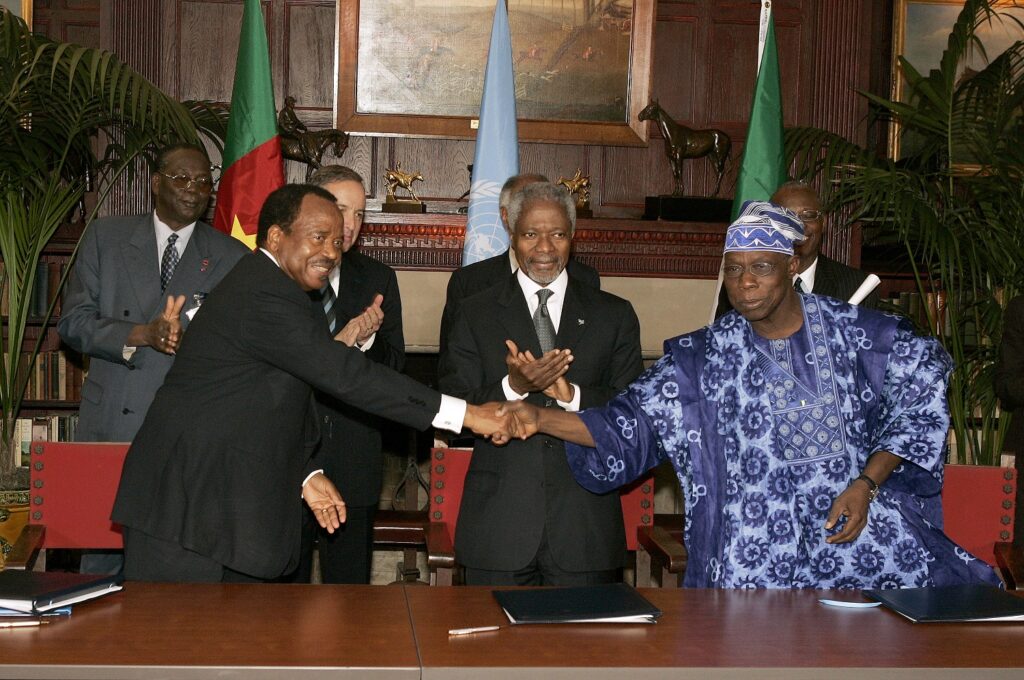
Not satisfied with the ICJ judgement and the Greentree, the indigenous members of the Bakassi Peninsula threatened to secede from Nigeria and remain and independent nation. Even the Nigerian senate and several other concerned citizens added their voice to condemn the judgement and its enactment by the Nigerian Government.
According to Femi Falana, a legal practitioner in Nigeria, he described the handover of Bakassi to Cameroon as the height of ‘Executive lawlessness’. According to him, the Section 12 of the Nigerian Constitution States that no treaty signed between Nigeria and another country can come into force with a domestication or enactment into law by the Nigerian National Assembly.
The Nigerian Senate passed a resolution on 22 November 2007 declaring that the withdrawal from the Bakassi Peninsula was illegal. The Nigerian government eventually handed over all of Bakassi to Cameroon on 14 August 2008.
The Challenge of The Bakassi People
Several of the Indigenous People of Bakassi people who returned to Nigeria consequent of this handover were not resettled immediately. Several of them lost the source of their livelihood and the government has not provided them with employment. The fishermen were settled on places not suitable for fishing but good for agriculture. This did not go down well with lots of them as they had been fishermen all their life and it was not easy to switch profession.
After the handover of the Bakassi territory to Cameroon, several of the indigenous people of Bakassi were forcefully evicted by Cameroonian authorities and returned to Nigeria, an action which is contrary to the Greentree Agreement.
The prevalent corruption in Nigeria has made matters worse. Several conversations I had with a few persons on my way visiting Bakassi is a testament to this fact. According to one of the persons I talked to who choose to be anonymous, several of the local politicians at the local government and the state levels have diverted most of the funds that were meant for the resettling and upkeep of these internally displaced people.
The United States Government classified information published by the Wikileaks questioned the whereabouts of several of the internally displaced persons who were resettled at the New Bakassi Local Government Area. According to this publication dated March 4, 2009, it alleges that of the Nigerian citizen Bakassi residents who returned to Nigeria were temporarily housed for one to two months, and then sent away to other states of the South or back to Bakassi with little support or infrastructure to distribute aid for resettlement. It also maintains that there has been no accountability for nearly USD 13 million in federal funds for internally displaced persons (IDPs) and it appears that the New Bakassi Local Government (none of whom appeared to be former residents of the Bakassi peninsula) may have profited from the aid funds. It is unclear whether housing ostensibly built for IDPs will in fact be allocated to them, or when. The Liyel Imoke then governor of the state had requested additional aid for the Bakassi IDPs, although there is no evidence of any ongoing resettlement projects.
In some very recent development, the present governor of Cross River State of Nigeria which was the state where Bakassi is located in Nigeria before its annexation, built a fully furnished two bedroom apartment for several of the most affected persons in Bakassi. At the official handing over ceremony of these houses to the people of Bakassi, the governor was quoted as saying: ”My first tears for the people of Bakassi was when I was a senator on the floor of the Nigerian Senate which prompted me to push for a bill for the establishment of social housing and the making of provision of housing a right. “I have a sense of fulfillment to see my sons, my aunties, my mothers and fathers who lived in a clustered accommodation in a primary school with mosquitoes feasting on them now moving into their new homes.”
The governor still grieves the loss of the peninsula, saying the ceding did not follow internationally prescribed process. The governor said: “Today is not just about the joy to the people of Bakassi, it is the supremacy of the governance of a sensitive people over the failure of the federal government to be responsible for the pain of the people of Bakassi.”
Thanks to the governor for this gesture but what he has done is only a drop in the bucket compared to a lot still undone. There are still thousands who up till now do not have proper homes or places to lay their heads. Thousands are still unemployed and that is the reason so many think there is a lot of insecurity and kidnapping in Cross River state.
The federal government and the state government, including the United Nations who delivered the 2002 judgement that ceded the Bakassi Peninsula to Cameroon should take appropriate actions to ameliorate the plight of the Bakassi people.
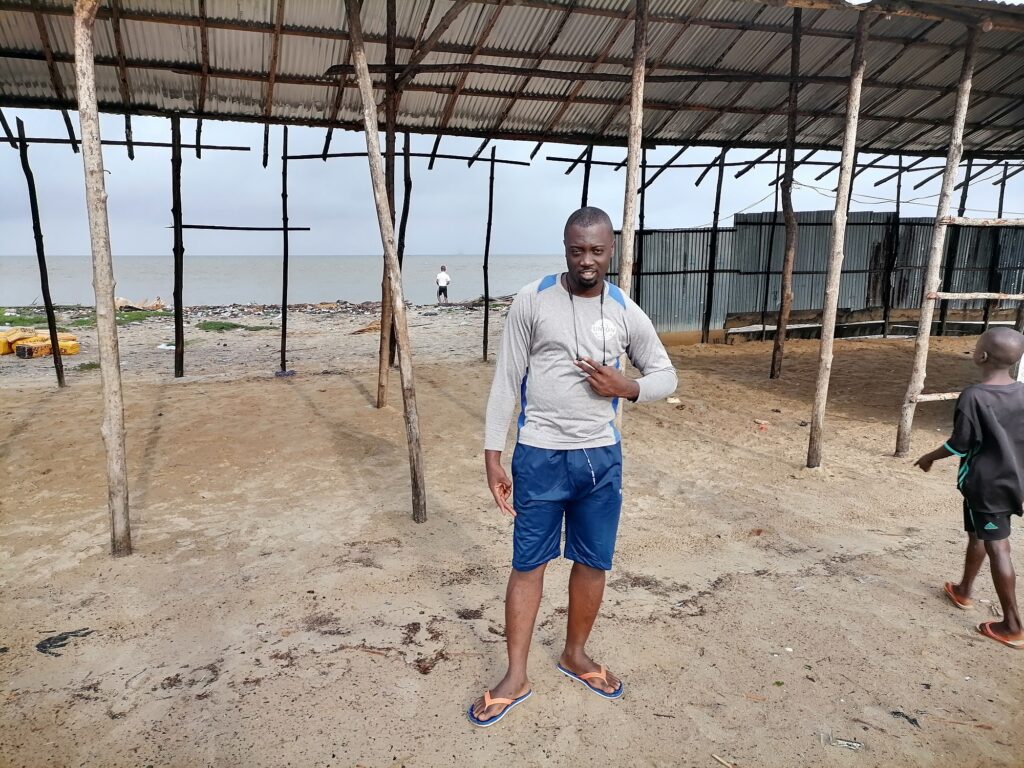
On my arrival to the Abana Island, I felt very sad at the living condition of people living in it. There are no electricity, portable drinking water, proper sewage systems – I saw different signs posted warning people to be cautious of cholera outbreak. I even saw people disposing excreta into the beach. The housing facilities were very deplorable. The houses are made of rafts or zinc and there are no proper toilet facilities as noted earlier.
This peninsula taught me what it means for a place to be occupied. Armed Cameroonian soldiers were seen both day and night patrolling the peninsula. I imagined the threat of seeing armed soldier every now and then have on the locals.
I did not have time to do much on the Peninsula. I visited a few of the locals who make crayfish to see how they make it –at least, interacting with them would not trigger the anger of the Cameroonian military or make anyone think am a spy.

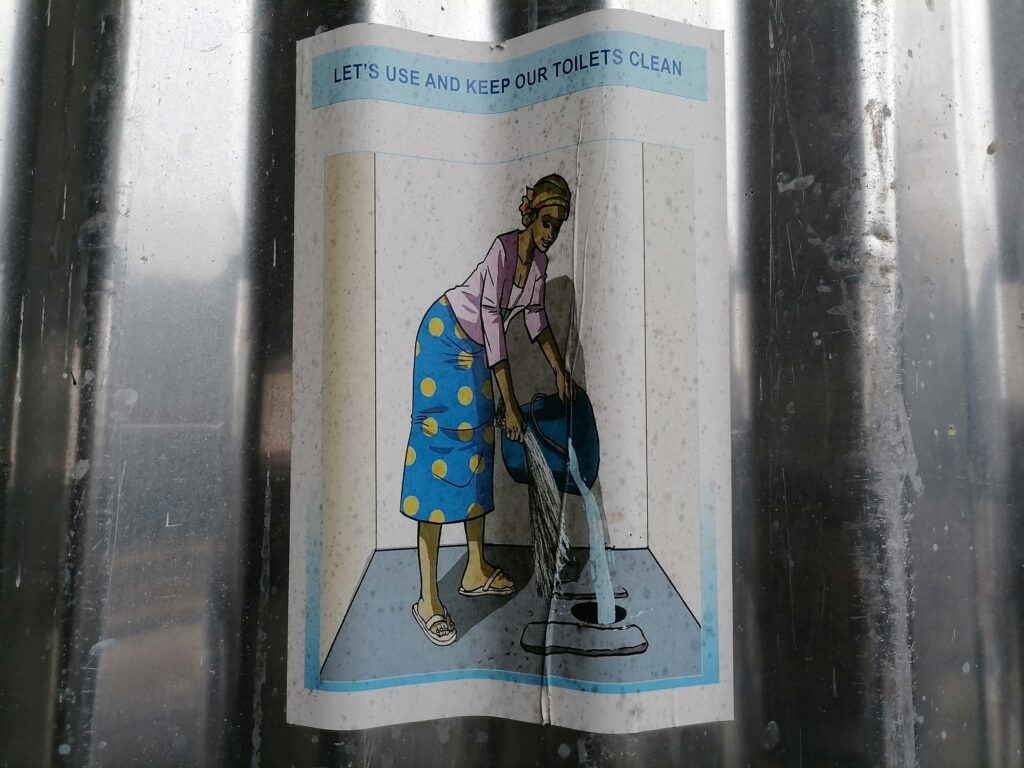
One of the things I would have wanted to do was to go a fishing with the locals but I was constrained by time. I could only visit those processing Crayfish before I took my leave back to Nigeria.
From Abana, I had planned take a boat back to Oron but unfortunately, there was no boat, I was advised to sail to Ibaka in Akwa Ibom State from where I would get a taxi or a motorbike to Oron. From Oron, I can get a vehicle to Port Harcourt for the wedding.
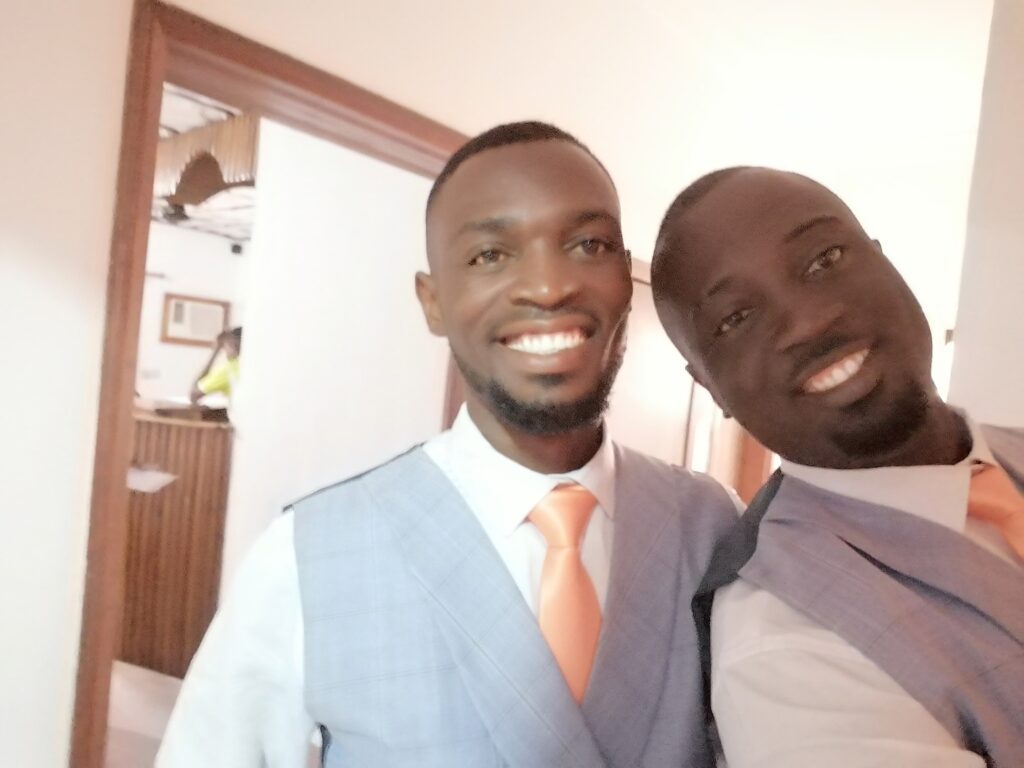
Something important to note while traveling on this route – there might be some harassments because some of the border officials on both sides like the immigration and customs would expect you to complete all travel formalities since Bakassi Peninsula is now a Cameroonian territory. You might travel without your documents but be very sure to pay some bribe to the border officials. I also hope that the government of the Republic of Cameroon and Nigeria should provide for those who were displaced by this transfer of sovereignty.

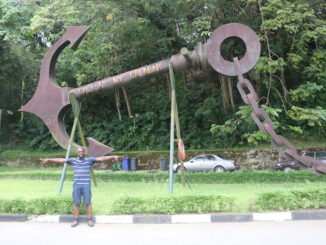
So much of research. Interesting article, very educating too.
Thanks Cj. Happy you read.
Very interesting! An insight view of an area unknown to me up to now, allowing to get a historical context! Thanks
Thanks a lot Uncle Sam. So glad you had some time to go through.